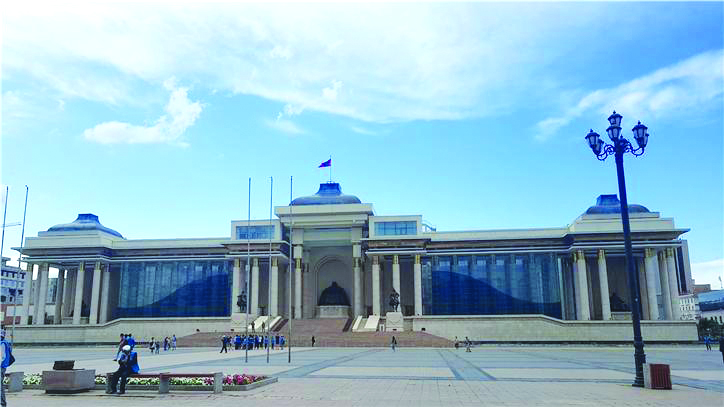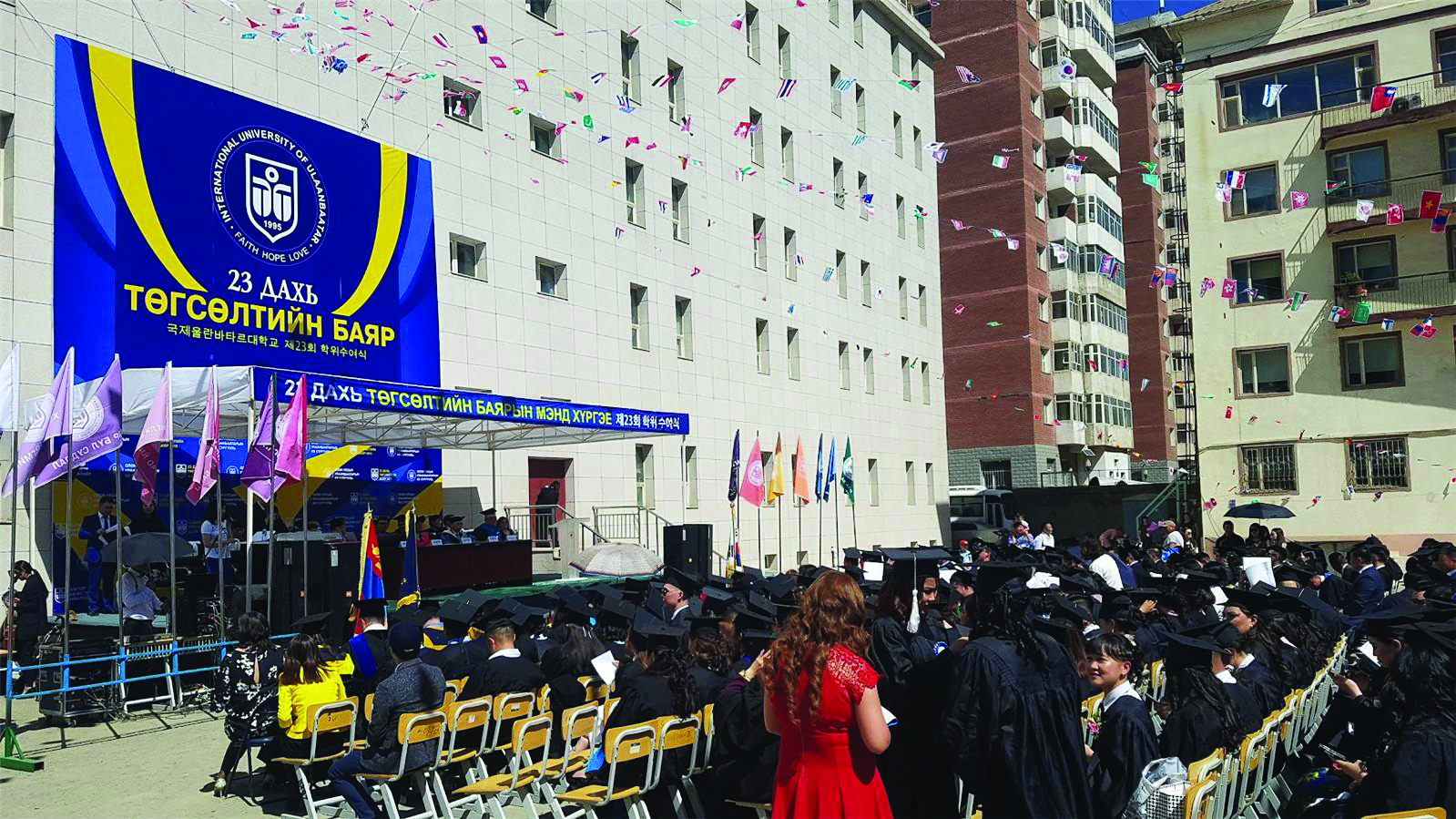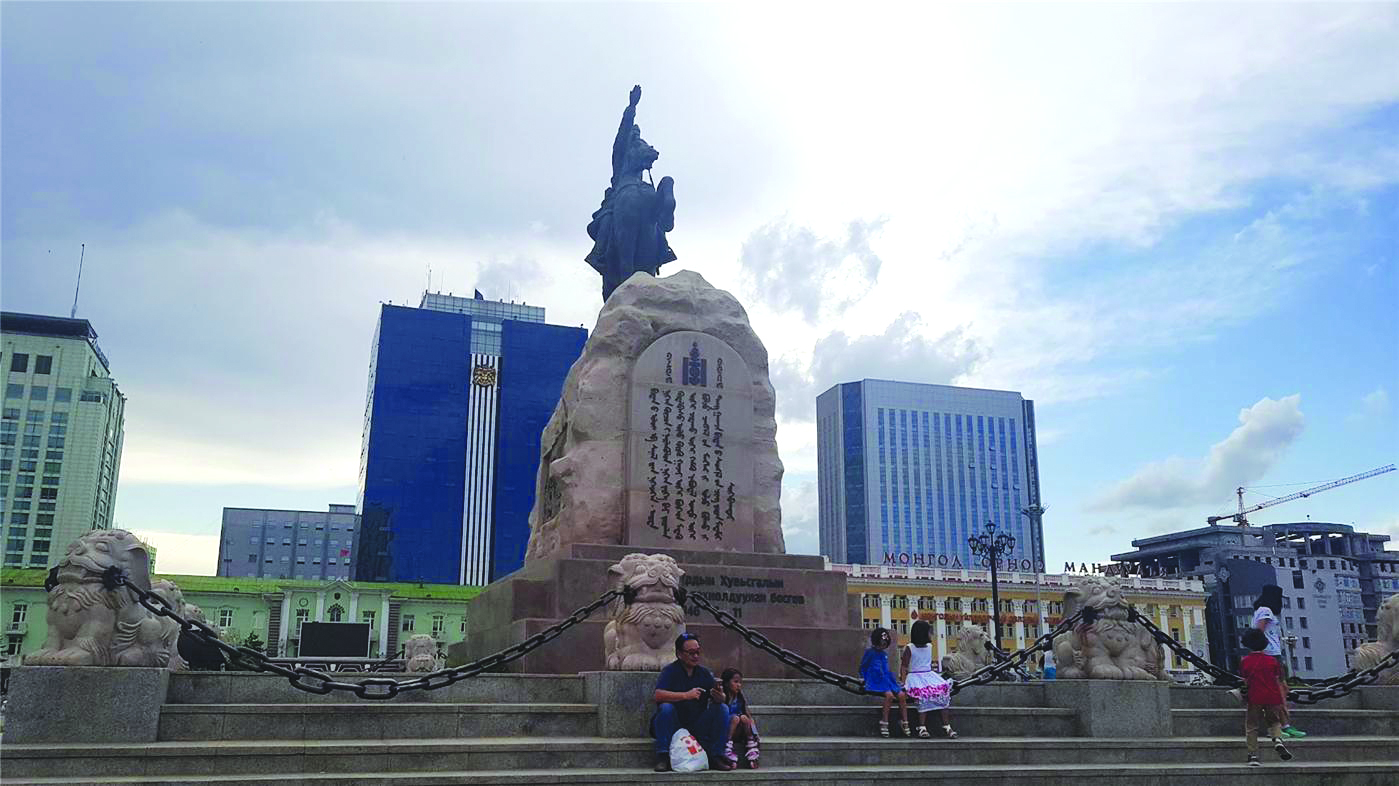NORTHEAST ASIAN HISTORY FOUNDATION 04/2022
-
Yeo Byeong-mu, Professor, International University of Ulaanbaatar, Mongolia

Start of New Semester in Normal Hours and COVID-19 Situation
All schools in Mongolia opened for the new semester on February 7, with regular hours from the fourteenth. It was great to see the bright faces of students in the classrooms after a long time. They took classes primarily online for the past two years. Still, many of them could not even attend the online classes. Students without internet connections at home used mobile data to participate in the class. Many students shut down the video, only listened, and did not respond during classes. Some students attended online classes while working part-time. Some living in the countryside had to take their mobile phones to the top of the mountain for better reception to join the class, creating an unusual scene. As we gradually return to normal life, we think about what happiness is once again.

The Mongolian government decided to lift the emergency response rule related to COVID-19 on February 14. Still, the government urged the public to pay attention to personal hygiene, such as voluntary distancing, wearing masks and disinfecting hands. Foreigners only need to submit PCR test results to enter Mongolia. Mongolia was a COVID-free country in 2020, but the disease produced several confirmed cases, spreading quickly throughout the country once it penetrated the border. Out of a population of 3.35 million, more than 900,000 were confirmed so far, and more than 2,000 died. Even now, the country reports the continuation of confirmed cases, but the Mongolian government has chosen to return to normalcy. It seems that the decision was to reduce the national loss.

Logistics Disturbance and Inflation
Looking at the logistical situation in Mongolia, it is experiencing difficulties in import and export due to the aftermath of COVID-19 and the Beijing Olympics. As no imports are coming in, the nation is experiencing an unprecedented situation, such as rising prices and a shortage of daily necessities. It has become difficult to find instant noodles and frozen foods that Koreans living here used to purchase at E-Mart and Korean stores because they are restricting cargo transportation from China to Mongolia after they had COVID-19 cases in the customs clearance area on the border between China and Mongolia. Some of the imported cargo is stuck in Tianjin Port and are being kept loaded in Yiren, the border on the Chinese side. It usually used to take three weeks for goods from South Korea to arrive in Mongolia, but now it takes three to four months, like receiving goods sent in October last year in February of this year. In Ulaanbaatar, there is a shortage of building materials, office supplies, daily necessities, and food, causing prices to rise. In January, inflation rose 14.6% from the same period last year. The increase in import prices has driven the overall inflation. It would be challenging to maintain the annual inflation forecast of 8%. Although some items are imported through Russia, they would not replace various things that were imported from China.
Oyu Tolgoi and the Development Bank
Oyu Tolgoi is a place in the Gobi in southern Mongolia. It is one of the few places with the world's top copper and gold reserves. The region is being developed by the Mongolian government and a global mining company, Rio Tinto. When fully developed, it will become the fifth-largest high-tech mine in the world. More than 80% of the mine's reserves are underground. It is reported that the underground mine will be developed with blockchain technology. When they begin to fully develop the underground mine, the Mongolian government will receive 700 billion tugriks (300 billion won) in royalties every year. The Oyu Tolgoi project had many ups and downs, and underground mining resumed on January 25, eight months after production was stopped. It is expected to contribute significantly to the Mongolian economy and budget when full-scale production and export begin in the first half of 2023.
A key issue in Mongolian society is the development bank. The Mongolian Development Bank was modeled after the South Korean Development Bank, and former Korea Development Bank officials participated as advisors in its establishment. It has recently become a national and social issue as 26 companies that took loans from the Mongolian Development Bank were accused of failing to repay. The loan is worth about 1.3 trillion won, and 55% are non-performing loans. The media reports that high-ranking public officials and lawmakers are involved in non-performing loans.
The Mongolian economy will soon record $10,000 per capita if national projects, such as the development of the Oyu Tolgoi mine and the completion of an oil refinery with the support of the Indian government, are successfully carried out. For this, we hope that Mongolia eradicates national and social corruption and seizes opportunities for national development.

The user can freely use the public work without fee, but it is not permitted to use for commercial purpose, or to change or modify the contents of public work.



